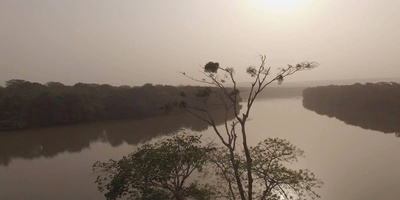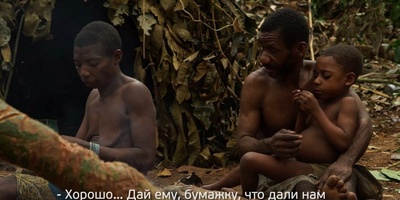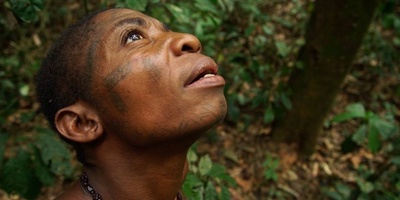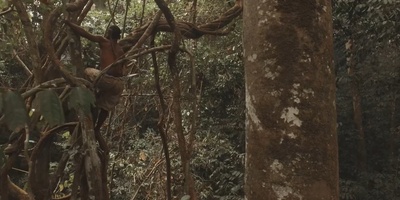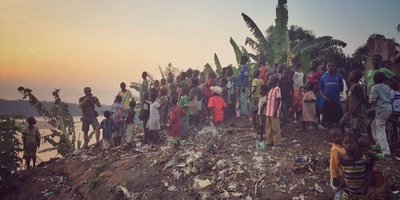2016 | Documentary | 45 min. | Russia | 18+
The Central African Republic. Here in the shade of sub-panel rainforests lives a tribe of the shortest people on Earth - the Baka pygmies. As it was hundreds years ago they hunt for meat and gather gifts of big trees. They pray to the spirits of the forest and teach their children to respect the forest, to take from it only what is of great need. But little by little their traditional mode is changing under the pressure of the "Big World" culture.
Directors Statement
The film history began several year ago, when soon-to-be project producer - Olga Michi, photographer, went out to the Central African Republic to make photos of the forest elephants. During the expedition she got acquainted with the local linguist Lui Sarno. In his turn he introduced Olga to the Baaka pygmies - the shortest people on Earth. At that moment Lui have been studying the Baaka culture and language for 15 years. He told Olga that if nothing is done this tribe will soon disappear, along with the other forest inhabitants and the forests themselves. Olga returned to Moscow and decided by any means draw attention of the world to the problem of "short people" and their "big trees". At that time I as well as Olga have been studying small and disappearing peoples of Russia and Asia and have made several documentaries under one title - "Rare people". I got my first master's degree in ethno social studies in Peoples' Friendship University of Russia (n.a. Patris Lumumba). I have spent 7 years in dormitory and shared a room the Africans and Asians. It was like "the world under one roof". I understood how small our planet is. And how important it is to keep it diversity. May be that's why I was so interested in the pygmies of Baaka project. The most difficult moment in my work was to produce the shooting, to make contacts. It lasted for almost three years before we finally have built trust with the little pygmies group. Lui Sarno helped us with it and worked as an interpreter. All in all when we began the shootings we were almost friends with the main characters of the film. They simply stopped paying us any attention as long as our cameras. We lived with them, went hunting together, washed together and eat. As the shooting went forward the heroes changed several times until we witnessed the conflict between Ndima and his son Yanti. Each of them stood for the values of his own world. Ndima - the world of his ancestors and Yanti - the world of "Big people" with the radio as its symbol. And it was the main dramatic conflict of the film - "fathers' and sons' " conflict... The new generation prefers to blur out their past in favour of modern trends from outside. The main idea of the film is to show this vicious circle of both private and global problems of the world may be not so clearly seen, which are interlaced together. We see how the world of "big people" interferes into the life of our heroes. The pygmies called so all those who live outside the forest... But the forest borders are reducing for manioc plantations, so the hunting lands are reducing. That's why the pygmies have come out from under the shadows of big trees occasionally in order to work on the plantations. Therefore they have a chance to get some money to buy the very same manioc - tuberous root, from which the flour is made (corn tapioca analogue). That is a vicious circle, and "the little people" can't get out of it. But we can break the this circle if only think for a moment that our planet is so small and what is the real price of money... and the air we breathe in.
Director: Vadim Vitovtsev
Producers: Olga Michi, Maxim Koveshnikov and Svetlana Ignatenko

